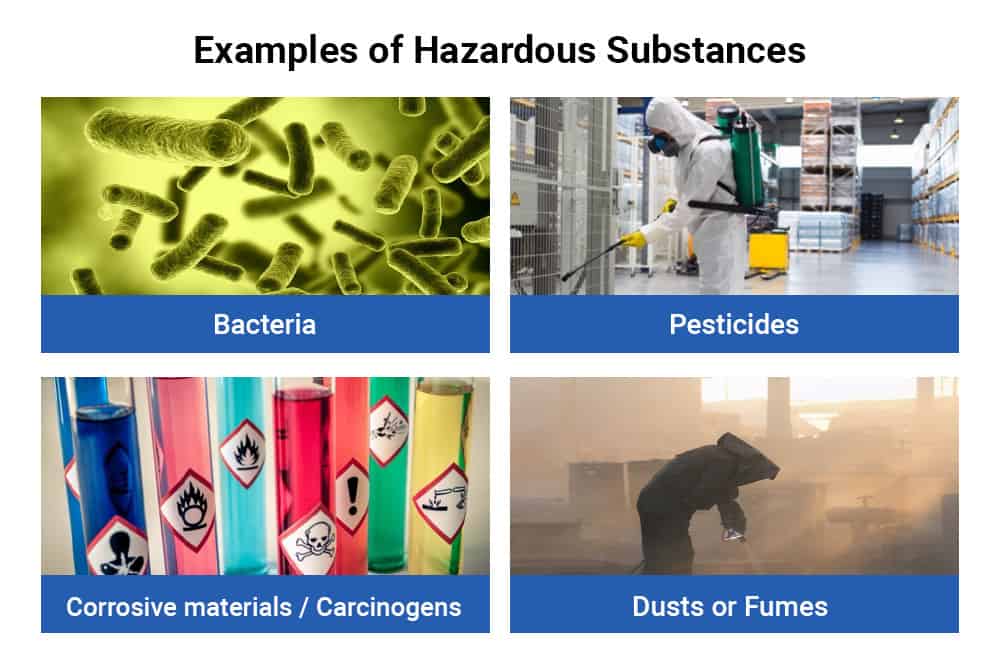
The Dangerous Substances and Explosive Atmospheres Regulations (DSEAR) 2002 provide a framework to ensure the safe handling of any dangerous substance. Dangerous substances are those that may cause a fire or explosion or be corrosive to metals. If you work in an environment with dangerous substances, your workplace will be regulated according to the guidelines set out by DSEAR.
Accidents involving fires, explosions and the types of substances that can corrode metal can have massive repercussions. So, ensuring compliance with DSEAR is essential.
What is DSEAR?
DSEAR is UK legislation that is focused on controlling dangerous substances in the workplace. The DSEAR regulations were brought into law in 2002 to ensure that the UK remained compliant with two European Directives: The Explosive Atmospheres Directive (99/92/EC) and the Chemical Agents Directive (98/24/EC).
What Does DSEAR Stand For?
DSEAR is the acronym given to the Dangerous Substances and Explosive Atmospheres Regulations 2002. DSEAR is enforced and monitored by the Health and Safety Executive (HSE).
What are Dangerous Substances?
Examples of dangerous substances include:
- Substances, such as petrol for vehicles or machinery
- Gases, such as acetylene for welding
- Vapours, such as fumes from paint sprayed in factories
- Dusts, such as dust from woodworking or food processing
- Processes, such as sanding operations

DSEAR was originally intended to cover substances which cause fire and explosions. In 2015, this was updated to cover gases under pressure and substances that are corrosive to metals.
What is the Purpose of DSEAR?
The main aim of DSEAR is to make sure that all people who are working with or are in the vicinity of dangerous substances are safe from harm, illness or injury. Some 11,916 fires occurred in non-residential buildings between 2020 and 2021. During the same period, an estimated 270 gas explosions in workplaces were reported, according to data gathered by the UK government and private companies. Many of these incidents could have been avoided by more stringent adherence to the DSEAR regulations.
Who Does DSEAR Apply to?
DSEAR applies to all people that conduct work activities in:
- Factories
- Warehouses
- Hospitals
- Outdoor areas, for example, forestry or road construction
However, there are areas where dangerous substances fall under other legislation, such as work involving:
- Ships
- Medical treatment
- Cooking appliances
- Water heating
- Mines
- Offshore transport of goods
What does DSEAR Require of Employers?
There are 5 main regulations under DSEAR that employers need to be aware of:
- Regulation 5 is related to Risk Assessment
- Regulation 6 is about controlling for risks
- Regulation 7 covers area classification
- Regulation 8 discusses how to handle incidents,
- Regulation 9 covers information, instruction and training
Employers must provide suitable and sufficient information, instruction and training to employees with respect to DSEAR risks and risk controls. This duty overlaps with the general duties outlined under the Health and Safety at Work, etc Act 1974.
Information, instruction and training must cover:
- Dangerous substances
- Identification measures
- Control and mitigation measures
- Accidents, emergencies and incidents
Information, instruction and training provided should be:
- Adequate given the level of risks
- Appropriate to the level of understanding and experience of staff
- Provided in a way that accounts for any language difficulties
Employers must also account for anyone, other than employees, that may be on-site and ensure they are adequately provided with the relevant information, instruction and training.
If your employees work on the site of another employer, or another employer’s employees work on your site, you must suitably inform them of any dangerous substances you are using.
Refresher training must be provided whenever appropriate, such as when the dangerous substances are changed, the risk assessment is revised or there is any significant change to the worksite or work processes.
What are DSEAR Risk Assessments?
A DSEAR risk assessment is an analysis of dangerous substances with the potential to cause fire, explosion and corrosion. Its purpose is to decide what must be done to control these risks “so far as is reasonably practicable.”
So far as is reasonably practicable means doing what you are reasonably able to do to ensure your workplace is safe for workers and anyone else that could be harmed.
DSEAR risk assessments must be carried out by someone suitably competent to do so. A DSEAR risk assessment must be proportionate to the size and consequences of a potential explosion, fire or other event, considering:
- The type of dangerous substances
- How much is involved
- How quickly it can be consumed
- The size of the potentially explosive atmosphere
- Amount of potential heat radiated
- How an incident could escalate
The Steps Involved in Conducting a DSEAR Risk Assessment Are as Follows:
- Identify the hazards
- Evaluate existing controls
- Consider who might be harmed and how
- Record the findings of the risk assessment
- Periodically review and revise the risk assessment
Why is Compliance with DSEAR Important?
Following DSEAR is not an optional activity. It’s a legal requirement and failure to comply with the law can result in prosecution. Breaches of any health and safety legislation can also result in large fines.
What are the Benefits of DSEAR?
DSEAR is purposefully designed to ensure that people working with dangerous substances are kept as safe as possible. When accidents involving dangerous substances and atmospheres occur, they can be incredibly serious and often result in severe injuries and the loss of life.
Fires and explosions can also result in significant property damage. In some cases, they have destroyed entire factories. Adhering to DSEAR regulations greatly reduces the likelihood of a fire or explosion occurring.
Ways to Stay Compliant with DSEAR Regulations and Legislation
All UK employers must make certain that their workplaces are compliant with DSEAR regulations and legislation. To do so, an employer should conduct regular risk assessments of dangerous substances in the workplace. Measures to eliminate or mitigate risks should be developed and implemented.
Risk assessments should be regularly reviewed and updated when necessary. All staff should be provided with relevant training on DSEAR and other related legislation, such as the Control of Substances Hazardous to Health (COSHH) regulations.
Human Focus offers online courses aimed at providing employers and employees with the knowledge and skills they need to stay safe in the workplace. The Human Focus Hazardous Substances courses cover a wide range of topics on working with dangerous substances and maintaining compliance with health and safety legislation. These courses are fully accredited and can be taken online in segments so as to fit in with work schedules.




















































































































































































































































































































































































































































































































































































































































































































































